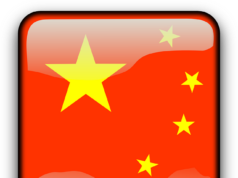Economic strategists and economists believe that financial flows into the currency will increase in the long term as Beijing continues to gradually open its financial system.
The yuan will gain in importance around the world as China continues to channel foreign capital into the country through selective financial opening and push its trade with the Belt and Road initiative, said Chi Lo, Senior Economist for Greater China at BNP Paribas Asset Management in Hong Kong , He told TV channel CNBC.
So, if you look in that direction, there’s no way the yuan can be a weak currency, otherwise people will not accept it and it can not be a global currency if it’s a weak currency in the long term.
Read more: China completes currency swap business with Indonesia
The SWIFT global financial transmission system wrote in its latest monthly report on the yuan that it was the sixth most used currency in national and international payments in October, just behind the Canadian dollar.
According to HSBC, markets focused on the trade war between China and the United States, and influenced the yuan as the main factor. However, the opening of Chinese financial markets is „probably the more significant and sustainable influence“ on the currency. The bank further stated:
The yuan is increasingly influenced by capital account flows, not just trade-related flows.
HSBC pointed out that China’s fiscal opening accelerated this year, with foreign investors‘ portfolio investment reaching a historic high.
The bank expects a significant shift as China opens the door further:
We believe this is just the beginning of a multi-year global trend for portfolio investment rebalancing.
Read more: China drops the largest amount of US promissory notes within the past eight months
The policy of „external reform and opening“ was introduced by the Chinese Communist Party 40 years ago. The process, according to Lo, is said to have developed gradually and to be strictly controlled, which is likely to continue. The expert described the opening of China’s capital accounts as „asymmetrical,“ meaning that it injects more capital than it spends.
The Chinese authorities clearly want the yuan to play a bigger global role, said Qinwei Wang, senior economist at Amundi Asset Management, to reporters in Hong Kong. As an example he mentioned currency swap agreements that the People’s Bank of China has already made with other central banks. They can be considered as part of „China’s efforts to improve and increase the acceptance of [yuan’s] internationalization,“ Wang said.



